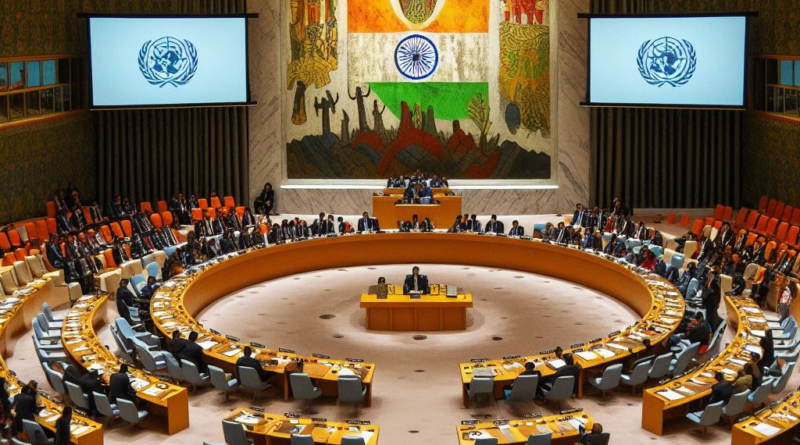India’s Abstention on Human Rights Council’s Resolution on Gaza Ceasefire |Ias Banenge
Context:
India opted to abstain from voting on a resolution at the Human Rights Council that urged Israel to implement an immediate ceasefire in Gaza and encouraged states to impose an arms embargo. The resolution was ultimately adopted by the 47-member Human Rights Council. India’s decision to abstain signifies a balanced approach to the complex and sensitive issue, reflecting its commitment to dialogue and diplomacy while maintaining its strategic relationships with both Israel and Palestine.
Relevance:
GS II- International Relations (Bilateral Groupings & Agreements)
READ MORE- About World Anti-Doping Agency
Dimensions of the Article:
- About UN Human Rights Council
- India’s Voting Behaviour at UNHRC on the Issue of Israel
About UN Human Rights Council:
- The Human Rights Council is an inter-governmental body within the United Nations system responsible for strengthening the promotion and protection of human rights around the globe and for addressing situations of human rights violations and make recommendations on them.
- It has the ability to discuss all thematic human rights issues and situations that require its attention throughout the year.
- It meets at the UN Office at Geneva.
Working of the Council
- The Human Rights Council replaced the former UN Commission on Human Rights.
- It was created by the UNGA on March 15, 2006, and the body met in its first session from June 19-30, 2006.
- In 2007, the Council adopted an “institution-building package” to set up its procedures and mechanisms.
- Among these were the mechanism of Universal Periodic Review to assess the human rights situations in all UN Member States, the Advisory Committee that serves as the Council’s think tank providing it with expertise and advice on thematic human rights issues, and the Complaint Procedure, which allows individuals and organisations to bring human rights violations to the Council’s attention.
- The Council also works with the UN Special Procedures established by the former Commission on Human Rights, consisting of special rapporteurs, special representatives, independent experts, and working groups that monitor, examine, advise and report on thematic issues or human rights situations in specific countries.
Membership
- The Council is made of 47 Member States, which are elected by the majority of members of the General Assembly of the United Nations through direct and secret ballot.
- The General Assembly takes into account the candidate States’ contribution to the promotion and protection of human rights, as well as their voluntary pledges and commitments in this regard.
The Council’s Membership is based on equitable geographical distribution. Seats are distributed as follows:
- African States: 13 seats
- Asia-Pacific States: 13 seats
- Latin American and Caribbean States: 8 seats
- Western European and other States: 7 seats
- Eastern European States: 6 seats
Members of the Council serve for a period of three years and are not eligible for immediate re-election after serving two consecutive terms.
Issues:
- A key concern for some critics has been the composition of Council membership, which sometimes includes countries widely perceived as human rights abusers.
- China, Cuba, Eritrea, Russia and Venezuela, all of which have been accused of human rights abuses.
- US pulled out of the Agency in 2018 due to its disproportionate focus on Israel, which has received by far the largest number of critical council resolutions against any country.
- The US has joined the organization again.
India’s Voting Behaviour at UNHRC on the Issue of Israel
India’s Supportive Votes
- India previously voted in favour of three resolutions critical of Israel for:
- Human rights violations against Palestinians,
- Israel’s occupation of Syrian Golan, and
- Advocating for Palestinian right to self-determination.
Abstention from Fourth Resolution
- Recent Context:
- Following the killing of seven international aid workers in Gaza due to Israeli airstrikes and a military strike by Israel on the Iranian Embassy in Damascus, which India expressed concerns about.
- UNHRC Resolution Vote:
- India abstained from voting on a UNHRC resolution that called for an immediate ceasefire in Gaza.
- The resolution also sought an arms embargo on Israel, marking the first time such a call was made.
- Reason for Abstention:
- The HRC resolution did not condemn Hamas while criticizing Israel.
- India believes in condemning both parties and holding them accountable based on their actions.
-Source: The Hindu





Pingback: About The Green Credit Programme | Ias Banenge - Ias Banenge